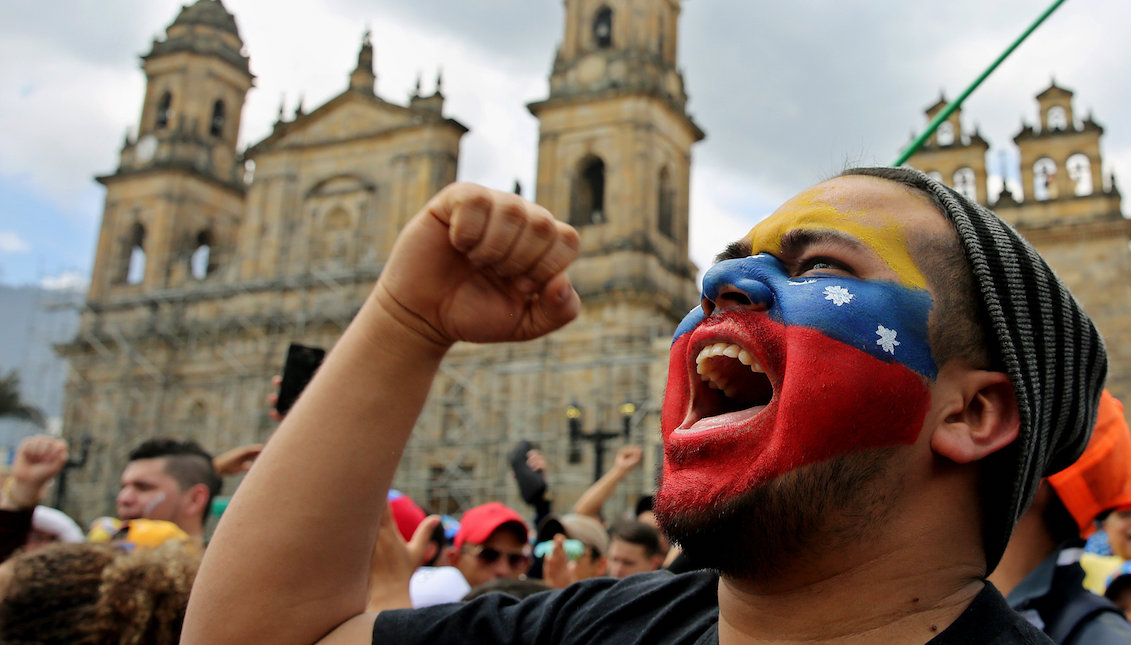
7.2 million Venezuelans shout "YES"
The popular consultation organized by the Venezuelan opposition last Sunday has resulted in more than 7 million votes in favor of a change in the country and…
"Defending a tyrant is shame," said Andres Bello, for "freedom is the life of the soul." What would the writer say if he saw what his country has become? Perhaps he would be proud of the 7,186,170 of Venezuelans who, from all latitudes, attended an independent electoral process, where they exercised the right to tell a tyrant that they reject his government, that they want free elections and that this is the moment to turn the page and retrieve what has been lost in almost two decades of fictional Revolution.
The convocation of the Mesa de la Unidad Democrática (a coalition of parties opposed to Chavismo), backed by the National Assembly (with opposition majority), was organized in a very short time and counted with only 2,300 national voting points - when elections organized by the National Electoral Council, with all the government machinery, has up to 14,000 points - and yet it got a total of 7.2 million votes, a figure quite close to the 7.7 million achieved by the opposition in the legislative elections of 2015.
The Venezuelans had to answer three specific questions:
1. Do you reject and ignore the realization of a Constituent Assembly proposed by Nicolás Maduro without the prior approval of the people of Venezuela?
2. Do you demand the National Armed Forces and all public officials to obey and defend the Constitution of 1999 and support the decisions of the National Assembly?
3. Do you approve the renewal of the Public Powers in accordance with the provisions of the Constitution and the holding of free and transparent elections, as well as the formation of a government of national union to restore constitutional order?
7.2 million people said three times YES.
"After this resounding peaceful, constitutional and democratic demonstration, what Maduro should do is cancel the Constituent Assembly in the next few hours," said Henrique Capriles, Governor of Miranda State and presidential candidate.
But the government's response was clear from the start. Not only did it ignore the consultation process, calling it "illegal and seditious", but also sent a strong message through its paramilitary groups, which opened fire at a voting center in the Catia (Caracas) sector, taking the life of two people and injuring four more, according to the Venezuelan Observatory of Social Conflict (OVCS).
The violent retaliation of the government has been the constant in more than 100 days of street protests, which have resulted in nearly 100 deaths and more than 1,000 detainees held by the Bolivarian National Guard, in a desperate attempt by the regime to cling to the power.
For its part, the opposition has maintained pressure on the streets, organizing an independent consultation to allow the numbers to speak to the government and the entire world about the need for a change of government, as the humanitarian crisis that the country is experiencing is unsustainable.
As if it was a country at war, 690,000 people voted from voluntary exile in places as far apart as Riyadh, Madrid, Canberra, Medellin, Jerusalem, Houston, Dusseldorf, the Sahara Desert, Belarus and Nairobi.
In this way, and as a symbol of contempt for the government, the opposition has carried out the first popular consultation since the National Electoral Council suspended the recall referendum process against Maduro and regional elections last year.
RELATED CONTENT
"With the votes that the people expressed today, Maduro is mathematically revoked today. That was the fear he had to the recall a referendum and for that reason he prevented it and that’s the reason why he doesn’t want to ever call for elections", assured the president of the National Assembly, Julio Borges.
For Maduro, Sunday's consultation is "internal to the opposition parties," but he also organized a simultaneous "simulacrum of voting", in preparation for the Constituent Assembly's election on July 30, to counter the opposition movement in the streets.
This only shows how divided the country is, and how the political realities of each side are exclusive.
The coming days are fundamental for the Venezuelan people in general. Each side has set the stage and does not intend to back down, even though international observers and spokesmen of world diplomacy have ensured that the democratic path should pass through the annulment of Maduro's Constituent Assembly and the call for general elections immediately.
For the opposition, the step to follow is the so-called "zero hour", which they intend to explain in the course of Monday, but which they anticipate as the categorical taking of the streets, to increase the pressure in the government, with the support of the consultation’s result.
The Venezuelan conflict is reaching a critical point, where the fragment the country into two states that are unknown to each other it’s the most probable scenario, with two Assemblies (one National and one Constituent) and two concurrent Prosecutors (as it has been for some days) .
Is this the outcome of the conflict? Will the Armed Forces help rebuild a sinking State? Should Maduro give up power?
A large number of Venezuelans say yes.











LEAVE A COMMENT:
Join the discussion! Leave a comment.